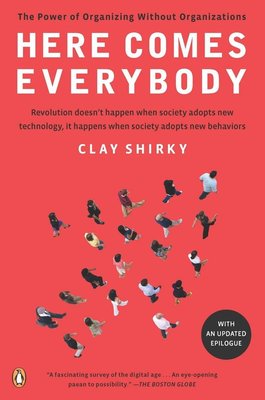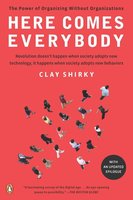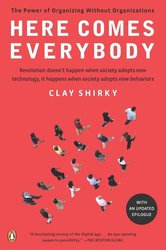“A fascinating survey of the digital age . . . An eye-opening paean to possibility.” — The Boston Globe “Mr. Shirky writes cleanly and convincingly about the intersection of technological innovation and social change.” — New York Observer An extraordinary exploration of how technology can empower social and political organizers For the first time in history, the tools for cooperating on a global scale are not solely in the hands of governments or institutions. The spread of the internet and mobile phones are changing how people come together and get things done—and sparking a revolution that, as Clay Shirky shows, is changing what we do, how we do it, and even who we are. Here, we encounter a whoman who loses her phone and recruits an army of volunteers to get it back from the person who stole it. A dissatisfied airline passenger who spawns a national movement by taking her case to the web. And a handful of kids in Belarus who create a political protest that the state is powerless to stop. Here Comes Everybody is a revelatory examination of how the wildfirelike spread of new forms of social interaction enabled by technology is changing the way humans form groups and exist within them. A revolution in social organization has commenced, and Clay Shirky is its brilliant chronicler.






